
WordUP! Writers
Bridging the Gap of Literacy in Education
A nonprofit writing education service focused on creating creative writing and academic opportunities for all K-12 students
Democratizing access to writing education and empowering young voices worldwide
WordUP! Writers is dedicated to democratizing access to writing education for students worldwide. We connect aspiring young writers with experienced mentors who provide free, high-quality instruction in poetry, prose, and storytelling as well as help with SAT English. In exchange, 100% of proceeds are donated to underserved schools and communities to support our goal of 100% literacy.
How We Help
Donations: Supporting literacy programs like in Action with Africa by donating books and writing supplies. Donating all proceeds to underserved schools worldwide.
Volunteers: Recognizing student mentors and community members who dedicate their time and skills to teaching and empowering young writers.
Education: Hosting engaging workshops for Scholastic Art and Writing, Foyle Young Poets, Creative Writing, etc. and distributing creative writing guides to inspire students to develop their voices and storytelling skills.
Equality: Advocating for equal access to writing education through blog posts, articles and social media campaigns.
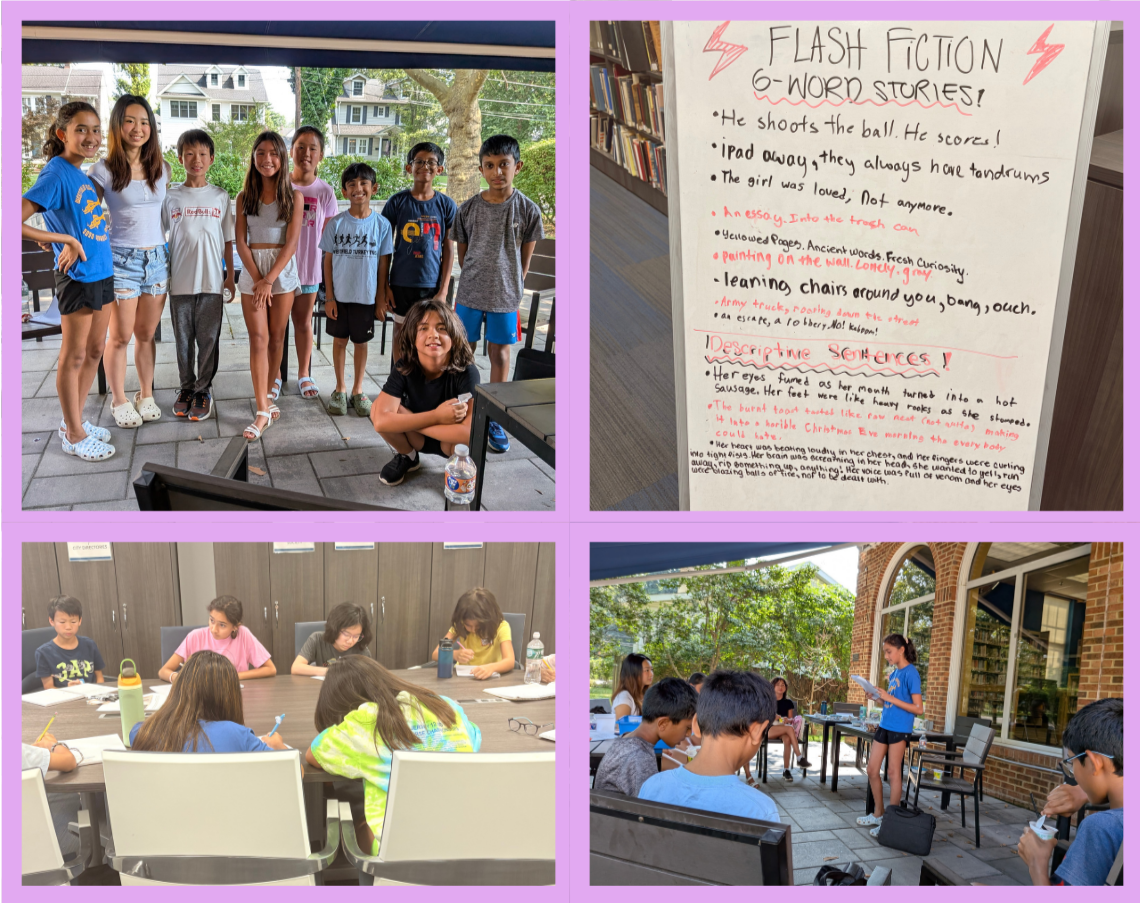
Learn more about WordUP! Writers and our Journey
Testimonials
"My child loved the flash fiction section of the workshop along with the other different exercises that helped her writing skills. This workshop really boosted her confidence and enthusiasm for writing. We would definitely recommend WordUP! to all families to help and encourage more budding writers to work on their skills and courage to continue writing."
Parent of B
"I would definitely recommend this program to others. It has been so helpful of Claire to set up this program. My daughter has learned a lot and was so happy to join Word UP!"
Parent of K
"I learned that writing doesn’t have to follow specific rules. I can just use my imagination. This workshop taught me patience and helped me enjoy the process."
B, workshop student
"In this class, I discovered how to make my writing better, like combining long and short sentences, using verbs to show what’s happening instead of telling, and writing dialogue that reveals a character’s personality. I loved writing and sharing my work out loud, and I’ll always remember to avoid clichés! The class was really fun, even when some examples were challenging."
H, workshop student
"In this class we learned how to write creative writing! We read examples of different genres and then wrote a little bit of that kind in the group chat. We did dialogue, show don’t tell, and learned not to use sense verbs. I like this class and want to stay in it forever! I was running around happy when I found out I was in it. It was so fun, especially learning show don’t tell, like instead of saying ‘I was scared,’ you can write ‘There were butterflies in my stomach and my heart was pounding.’ The first one is way better! I love adding dialogue and making my writing better.”
T, workshop student
Mentorship Program
About the Mentorship Program
This program is designed to match young writers from underrepresented backgrounds with mentors who both genuinely care and are qualified, experienced writers. You do not need to be a "writer" to apply. Our mentors have received national recognition from writing competitions like Scholastic Arts & Writing Awards, YoungArts, Bennington Young Writers' Awards, National Youth Poet Laureates, and more. They are alumni of highly selective writing programs like Iowa Young Writers' Studio and Kenyon Young Writers' Workshop and editors at global literary magazines like Polyphony Lit, the Dawn Review, Incandescent Review, Hominum Journal, and Rosetta Literary.
Mentors
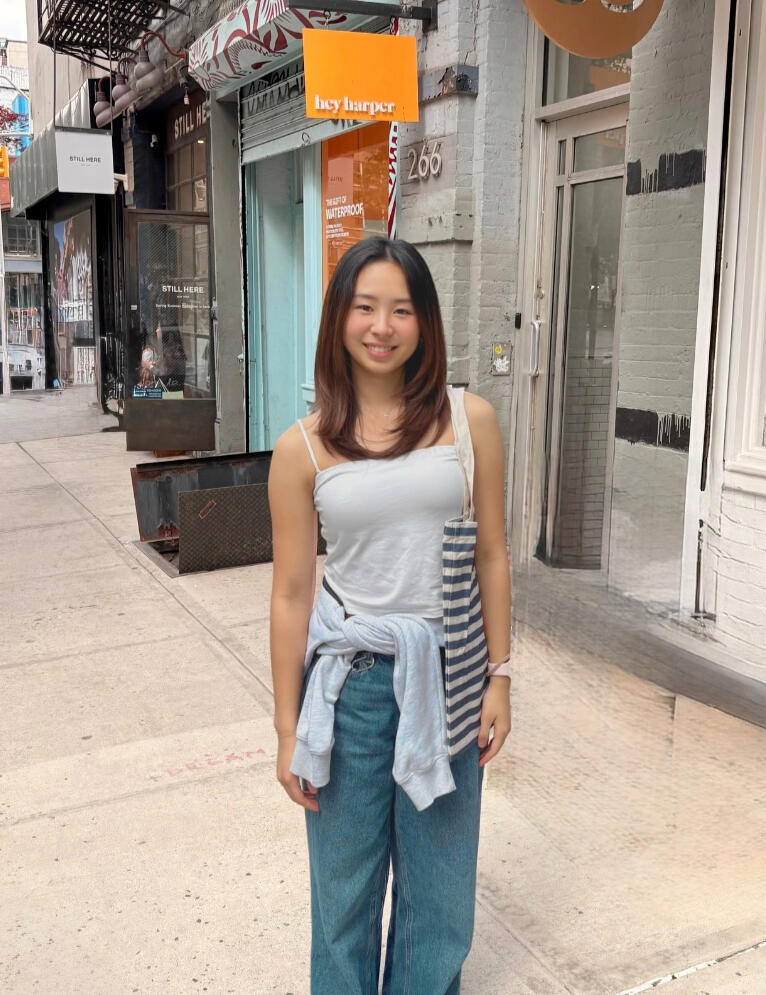
CLAIRE YANG
Claire Yang is a Chinese-American writer from New Jersey. She has been nationally recognized by the Alliance for Young Artists and Writers and YoungArts Foundation. She edits for the Dawn Review and Polyphony Lit and has had her work published in Eunoia Review, Aster Lit, Crashtest Magazine, and more. She loves the Big Bang Theory, sour plum drinks, and her mini goldendoodle, Simba.
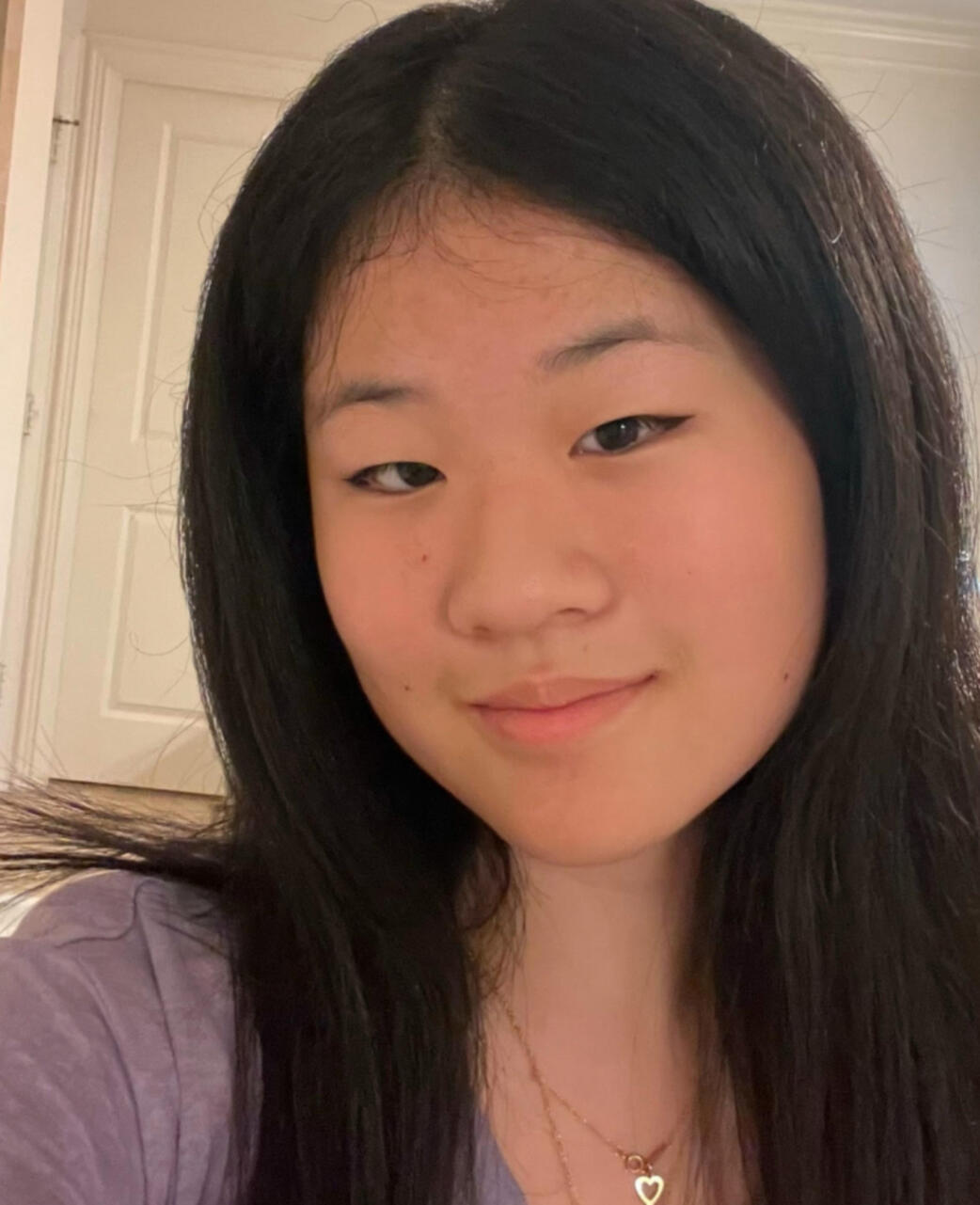
JENNY CHU
Jenny Chu is a high schooler from Dallas, Texas. The founder and co-editor-in-chief of Rosetta Lit, her poetry has been nationally recognized by YoungArts and the Alliance for Young Artists and Writers. She really loves Swedish Fish.
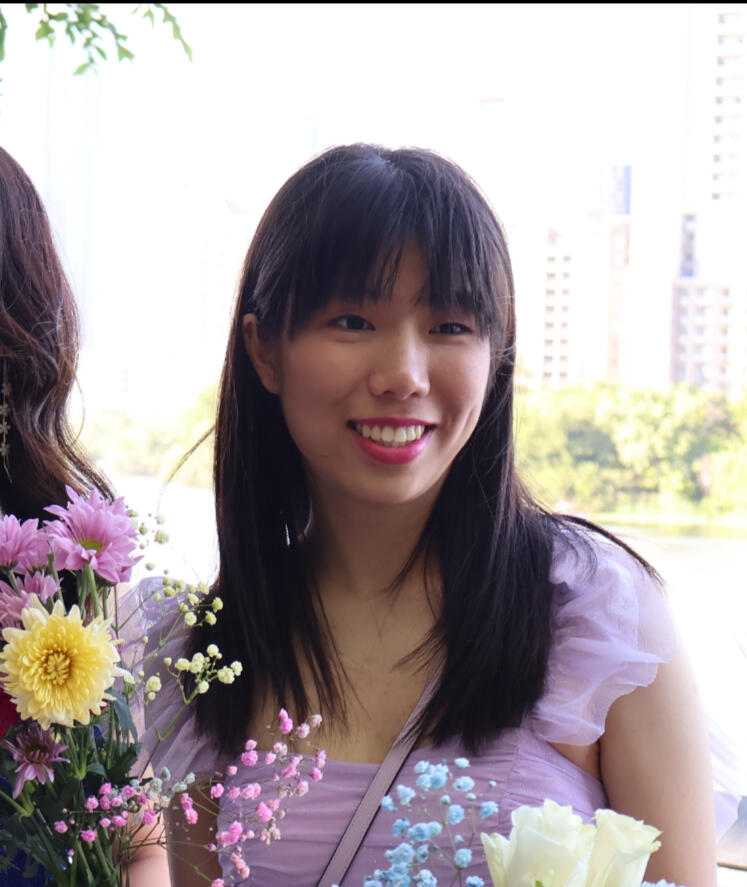
MICHELLE LI
Michelle Li has been nationally recognized by Scholastic Art and Writing, Bennington Young Writers Awards, and Apprentice Writer. An alumna of the Kenyon Review Young Writer's Workshop, her work is published in Aster Lit, wildscape. literary, and Third Wednesday. She is editor in chief of The Incandescent Review, executive editor for Hominum Journal, and reads for Ex-Puritan. You can find her at michelleli.carrd.co.
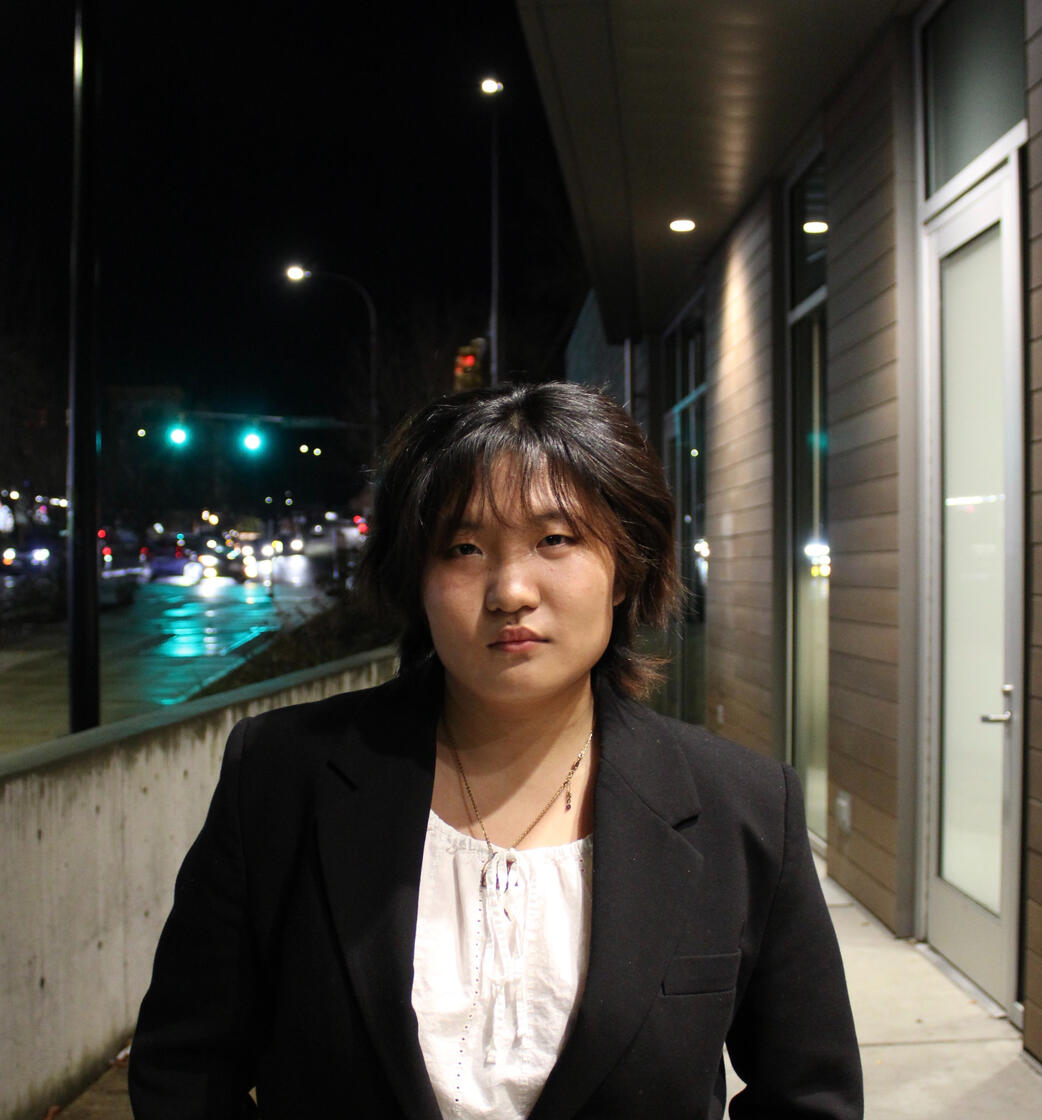
RUOYU WANG
Ruoyu Wang is a writer from Seattle who unconditionally supports Palestinian resistance and liberation. A 2025 YoungArts Winner in Poetry and a 2025 Finalist in the Narrative High School Writing Contest, their poems appear in Sine Theta Magazine, COUNTERCLOCK, and The Shore, among others, and have been further honored by The Adroit Journal, Interlochen Arts Academy, Rattle Magazine, NCTE, and the Live Poets Society of New Jersey. In high school, they attended the Iowa Young Writers' Studio, the Kenyon Young Writers' Workshop, and the Adroit Summer Mentorship, and they are now studying as an undergraduate in Massachusetts. They love live music, beach parks, vintage postcards, and the SUNHOUSE Summer Writing Mentorship, of which they are the Founder and Co-Director.
FAQs
What is the WordUP! Mentorship Program?
A free, remote writing mentorship for young writers. We pair accepted mentees with experienced young writers for 1-on-1 guidance, feedback, and support on an as-needed basis.
How does mentorship work?
You'll meet with your mentor weekly over Zoom or Google Meet, or asynchronously. Outside meetings, you’ll get written feedback, reading recs, prompts, and optional challenges.
Who’s behind this?
Student writers!
What will I work on?
Anything you want: poems, stories, essays, college apps, portfolios, submissions—or just finding your voice. Your mentor tailors support to your goals.
Is there a set curriculum?
No rigid syllabus. We believe mentorship should be personalized. You and your mentor co-create the journey.
How are matches made?
We match based on your writing interests and goals, not by GPA or awards. Every mentor is vetted and trained.
On-Demand Draft Reviews
About On-Demand Draft Reviews
This initiative is designed to provide writers with feedback on their writing, whether it be sentence structure, syntax, diction, flow, plot, etc. within a 48-hour turnaround. As writers, we know the struggle of wondering if our writing makes sense and conveys the meaning we intend, and also how difficult it is to receive constructive criticism from experienced writers. This initiative intends to bridge that gap by allowing you to submit your writing. We will send back detailed edits, comments, and in-line notes that strengthen your writing while preserving your unique voice. This gives young writers reliable support when they need it. Send us your draft!
Join Our Team
Help shape the next generation of writers. In joining WordUP!, you have the option to work 1:1 with a young writer and offer the guidance you wish you had starting out.

WordUP! Writers
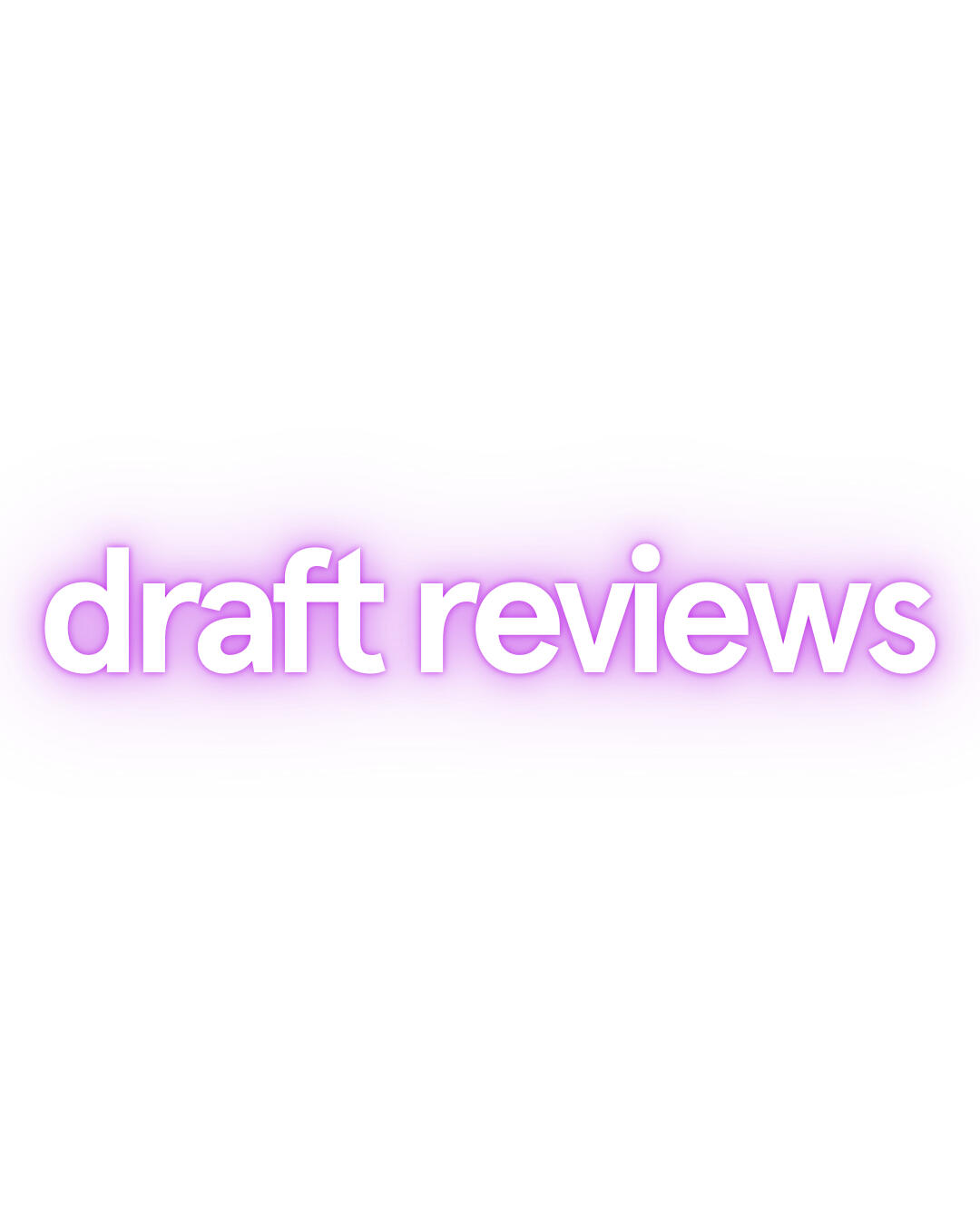
On-Demand Draft Reviews
About On-Demand Draft Reviews
This initiative is designed to provide writers with feedback on their writing, whether it be sentence structure, syntax, diction, flow, plot, etc. within a 48-hour turnaround. As writers, we know the struggle of wondering if our writing makes sense and conveys the meaning we intend, and also how difficult it is to receive constructive criticism from experienced writers. This initiative intends to bridge that gap by allowing you to submit your writing. We will send back detailed edits, comments, and in-line notes that strengthen your writing while preserving your unique voice. This gives young writers reliable support when they need it. Send us your draft!

WordUP! Writers

TBD
Guest Speaker Fiona Jin, Aster Lit Co-Editor-in-Chief
Fiona Jin is a writer near the shore of Lake Michigan. A 2024 YoungArts Winner with Distinction in Poetry and Winner in Spoken Word, her work has also been recognized by the Pulitzer Center, the Nancy Thorp Poetry Contest, the Center for Fiction, and the Chicago Literary Hall of Fame, amongst others. She is an alumna of the Iowa Young Writers Studio, the Adroit Journal Summer Mentorship, and the Kenyon Young Writers Workshop. She is a Co-Founder and Co-President of the literary collective Young Poets Workshops and a Co-Editor-in-Chief of Aster Lit. She wants you to know you are loved.
TBDZoom
11/18/25
Guest Speaker Ruoyu Wang, SUNHOUSE Mentorship & Executive Editor at the Dawn Review
WordUP! Writers will host our second guest speaker event with esteemed guest Ruoyu Wang. Ruoyu Wang (they/他) is a writer from Seattle. Their work appears in Sine Theta Magazine, COUNTERCLOCK, and The Shore, and have been recognized by YoungArts, The Adroit Prizes, and Narrative Magazine, among others. They love vintage postcards and currently serve as an Executive Editor at The Dawn Review.
TBDZoom
11/13/25-11/27/25
HS Scholastic Art and Writing Workshop
WordUP! Writers will host our first workshop about writing for competition and publication taught by two National Scholastic Medalists and internationally awarded writers with experience in writing and competitions! The class is designed for intermediate to advanced level students with knowledge in creative writing or those interested in submitting to the Scholastic Art & Writing Awards. The course will focus on flash fiction, short stories, memoir, and poetry, guiding students through winning pieces and teaching them writing techniques tailored to Scholastic. At the end of the course, students should expect to produce 2-3 polished pieces for submission to the contest.
5 - 6:00 pmZoom
10/12/25
UCVTS Q&A Seminar
The Union County Vocational and Technical Schools (UCVTS) curriculum Q&A seminar event was held on October 12 @ 7-9pm. The goal was to clarify UCVTS’s course selection process, help students select courses that best fit their educational needs, and answer various questions that parents and students have about the school and admissions test, especially for incoming 9th graders. Claire Yang, a junior at AIT and founder of WordUP!, led & co-hosted this webinar with Alvin Zhang and Paige Porciello, who are also Juniors at AIT. 20 panelists attending all UCVTS schools on campus, who specialize in math, sciences, English, Arts, and sports were able to speak and elaborate on student life. Alumni of UCVTS currently attending MIT (Hannah Tao) and Princeton (Madelyn Lee) were able to remark on how UCVTS shaped their journey and provided advice for underclassmen. It was a success, with ~70 attendees!
7 - 9:00 pmZoom
09/3/25
inKsight Round 4 Writing Workshop
WordUP! State Program Director Collin Kim taught a workshop to students in Los Angeles, California. The students got to write a story about their dream school and share their story and drawing with each other.
4 - 5:00 pmStudio City Branch Library
09/24/25 &10/08/25
Kids' Creative Writing Workshop
WordUP! State Program Director Collin Kim hosted the Kid's Creative Writing Workshop for children grades 1-3. Students wrote from the perspective of a kitchen object, imagining what it would be like to see the world through the eyes of something like a fork, a spoon, or even a whisk. Other days, they designed their own wizard and witch, building off previous lessons. This workshop was hosted with inKsight in Studio City, California.
4 - 5:00 pmLos Angeles Public Library
8/11/25-8/15/25
Poetry & Prose on the Patio
Join two-time Scholastic Art and Writing Awards gold medalist and WordUP! Founder Claire Yang for a week-long class designed to inspire and guide young writers in expressing themselves through poetry, short fiction, and creative nonfiction. Each of the five classes will focus on a different topic, and include writing prompts and personalized feedback. On the last day of the program we will have a small celebration on the patio during which kids will have the option to share their work and will learn about publishing pathways.
2 - 3:15 pmWestfield Memorial Library
08/02/24
Constructing your Argument: Argumentative Writing
Argumentative Writing
Students will learn how to create arguments and back up their thoughts with facts.
7:30 - 8:30 pmZoom
07/26/24
The Magic of Fantasy / Science Fiction
Fantasy / Science Fiction
Students will learn how to construct all forms of fantasy writing and science fiction, like Harry Potter or The Hunger Games.
7:30 - 8:30 pmZoom
07/19/24
Finding Your Story: Personal Essay & Memoir
Personal Essay / Memoir:
Students will incorporate their own life experiences into writing, reflect on important moments, and learn how to connect with their readers.
7:30 - 8:30 pmZoom
07/05/24
Delving into Poetry
Poetry:
Students will use their imagination to create poems, keeping in mind cadence and rhythm.
7:30 - 8:30 pmZoom
06/21/24
The Wide World of Writing: Creative Writing
Introduce your young writers to the wide world of writing with this course! Intended for 4th-7th graders, this class includes a wide breadth of genres. They will be encouraged to channel their imagination into creative, fictional pieces or analytical essays, to work on their precision, coherence, and discover their unique writing voice.Creative Writing
Students will delve into the realm of fiction and create universes and worlds where not even the sky’s the limit.
7:30 - 8:30 pmZoom

WordUP! Writers
Creative Writing
In this first class, we talked about creative writing, and how to write more descriptively. We learned about sense verbs and why we shouldn't use them, how to use dialogue to show instead of tell, and how to describe action whenever possible rather than telling. We also learned about cliches, and looked at an example that had a creative replacement. The homework was to:
Write a reflective journal entry about what you learned in class, one thing you found challenging and one thing you enjoyed!
Then, write a story that contains the line, "I wish we could stay here forever." Use what we learned in class (no cliches, no sense verbs, and try to show rather than tell!).
Poetry
Great work everyone! I really enjoyed hearing about what you wrote, and I hope you feel a bit better about poetry. This is the homework prompt:
Pick an image or painting, and write a poem about it. Try to use what we learned in class (metaphor, personification, and synecdoche).
Memoir
Great work this class! For homework, you can either finish what wrote about in class, or you can do this prompt:
Write about what superpower you would choose if you could have one, and tie it to a specific experience you have had
Looking forward to reading your writing!
Science Fiction
I had a wonderful time as usual reading your science fiction! For homework, you can continue what you wrote in class; below is the link to the document where your stories are and you can copy and paste it into the homework document -- or you could write from these prompts:1. What if the sun began to die, and surviving humans traveled back into time to survive?
2. What if the sun began to die, and surviving humans traveled to another dimension to survive?
3. A scientist clones his family that died in an airplane crash — but soon learns the repercussions of playing God.
4. Earth suffers a planet-wide no internet surge, and all technology is lost forever.
5. An astronaut and cosmonaut are on the International Space Station when their countries go to Nuclear War with each other. Their last orders are to eliminate the other.

WordUP! Writers
UCVTS Q&A Seminar
Slides
To access the slides, please visit this link.

WordUP! Writers
Poetry & Prose on the Patio
Curriculum
Read more here.

WordUP! Writers
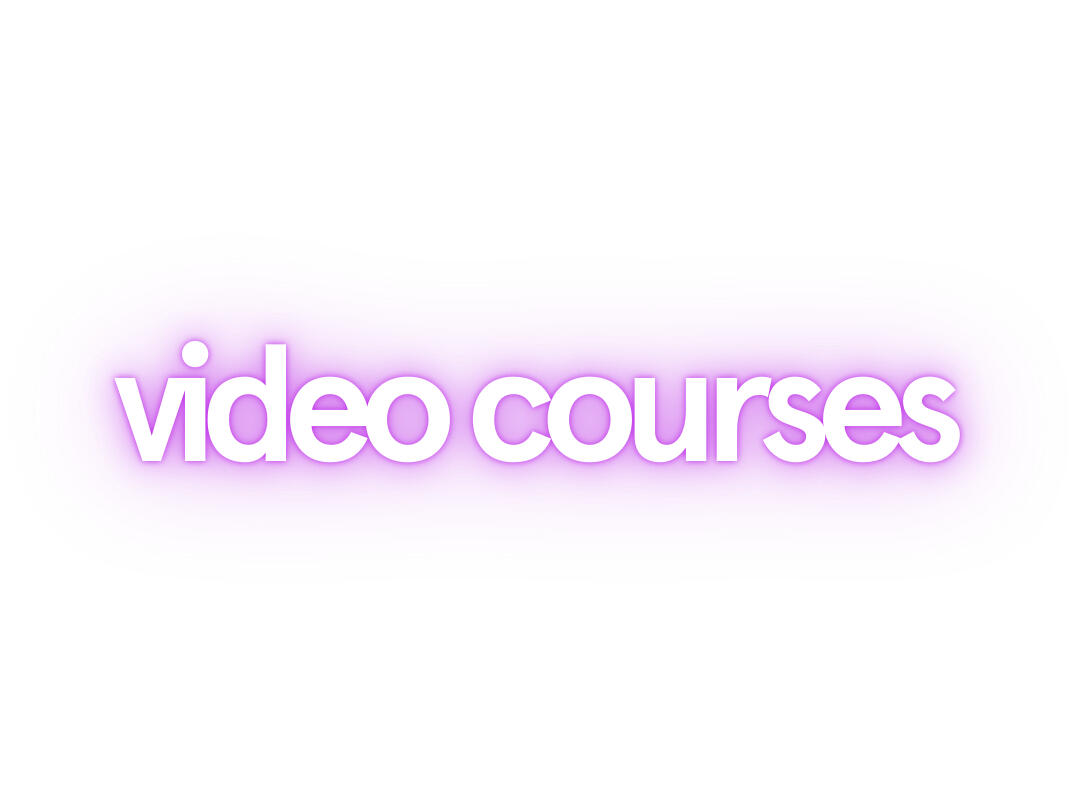
7th - 8th Grade Video Series
Complex Thesis Statements
Follow along with this worksheet.
Topic Sentences
Follow along with this worksheet.
Coming Soon!

WordUP! Writers

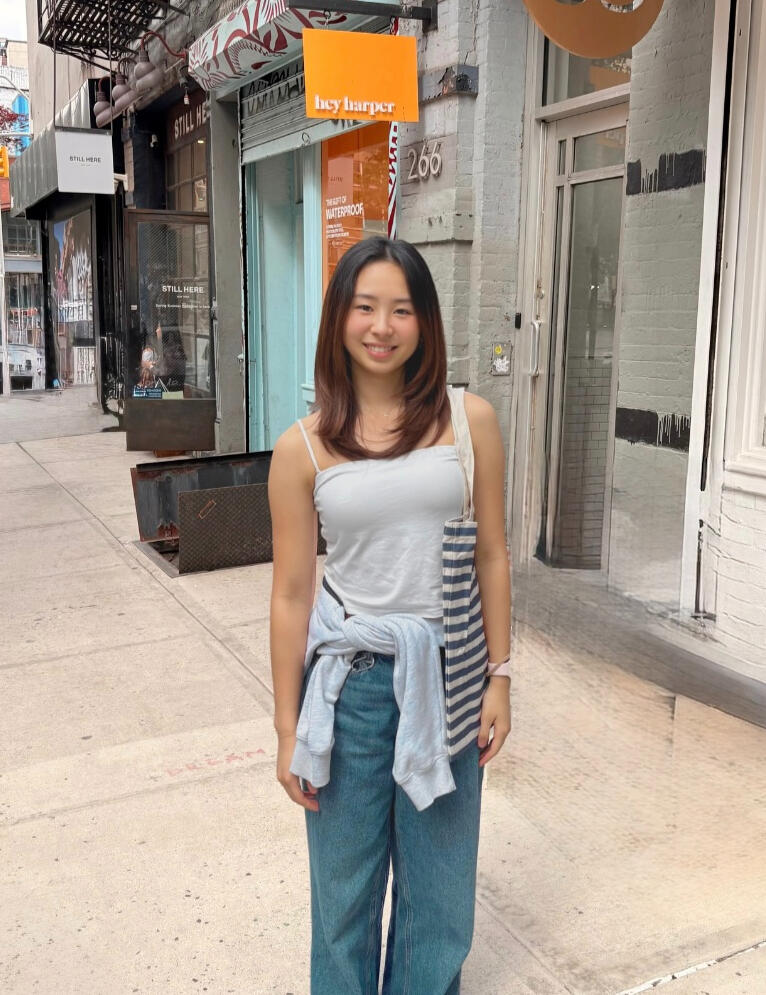
CLAIRE YANG
Founder & Executive Director
Claire Yang is a Chinese-American writer from New Jersey. She has been nationally recognized by the Alliance for Young Artists and Writers and edits for the Dawn Review and Polyphony Lit. She has had her work published in Eunoia Review, Aster Lit, Crashtest Magazine, and more. She loves the Big Bang Theory, sour plum drinks, and her mini goldendoodle, Simba.
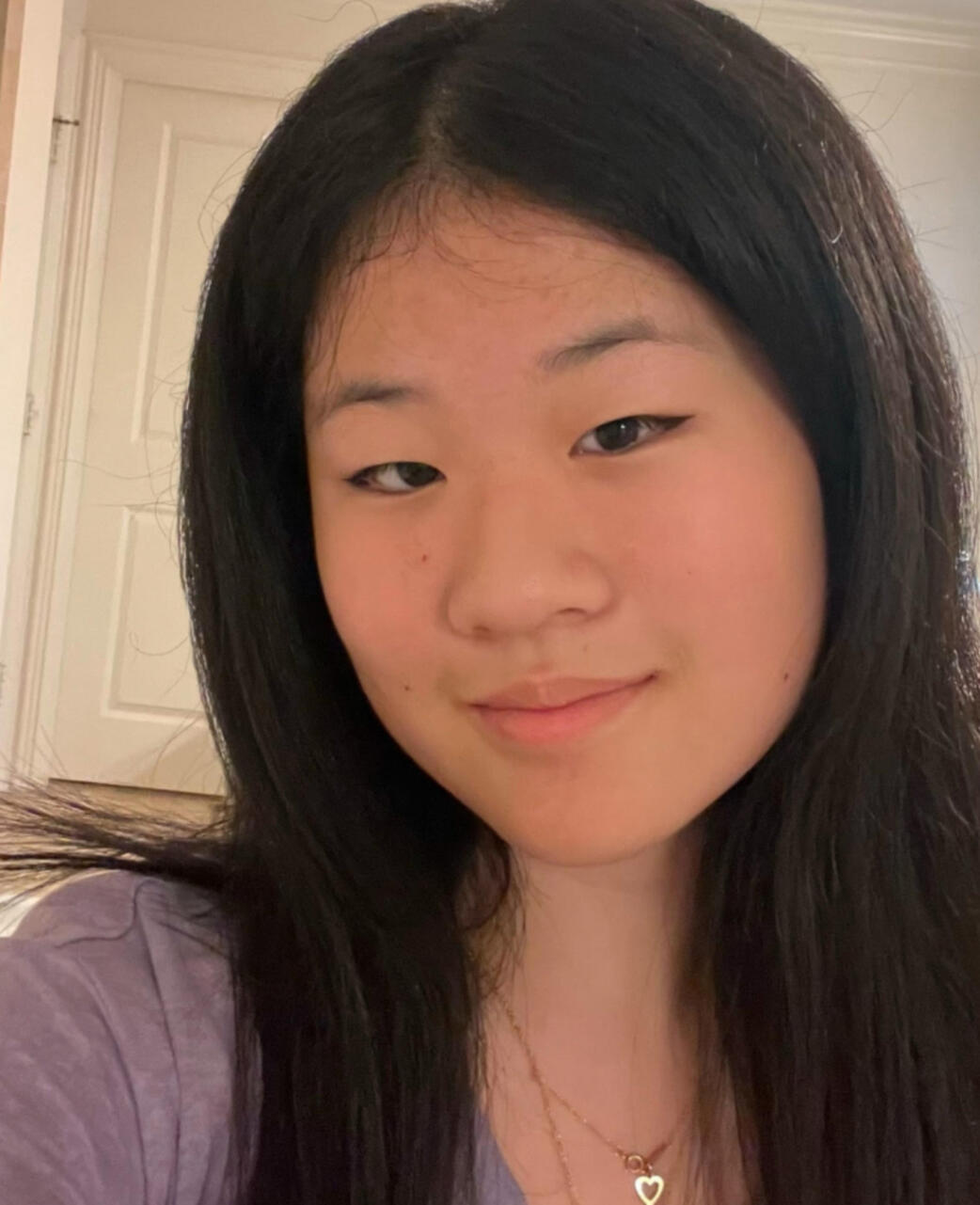
JENNY CHU
Mentorship Director
Jenny Chu is a high schooler from Dallas, Texas. The founder and co-editor-in-chief of Rosetta Lit, her poetry has been nationally recognized by YoungArts and the Alliance for Young Artists and Writers. She really loves Swedish Fish.
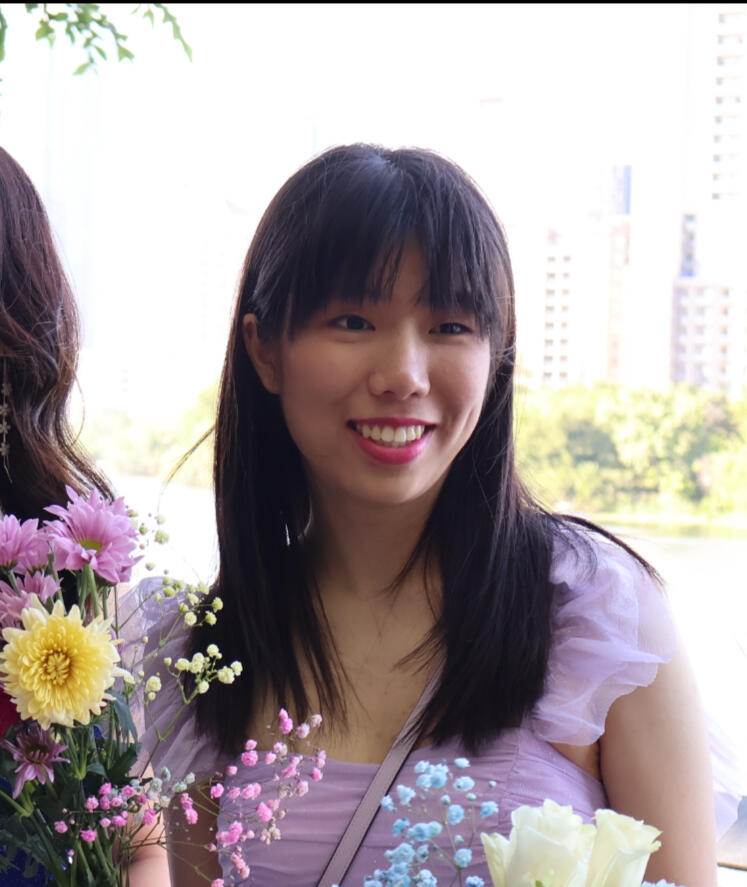
MICHELLE LI
Mentorship Director
Michelle Li has been nationally recognized by Scholastic Art and Writing, Bennington Young Writers Awards, and Apprentice Writer. An alumna of the Kenyon Review Young Writer's Workshop, her work is published in Aster Lit, wildscape. literary, and Third Wednesday. She is editor in chief of The Incandescent Review, executive editor for Hominum Journal, and reads for Ex-Puritan. You can find her at michelleli.carrd.co.
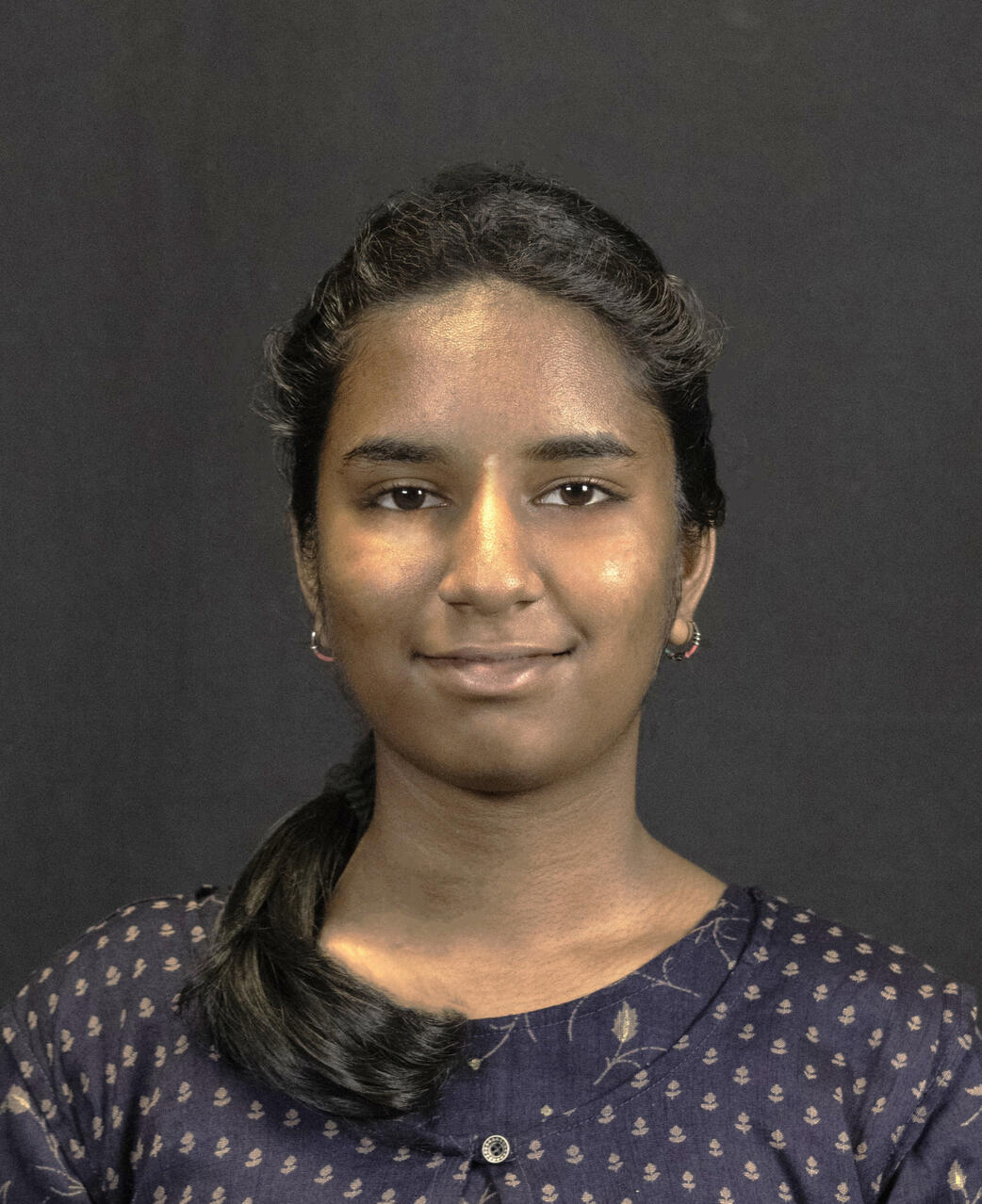
JOVINA ZION PRADEEP
Competitions Director
Jovina Zion Pradeep is the 2025 National Youth Poet Laureate of the Western U.S. and 2024 Alameda County Youth Poet Laureate. Her work appears in Poets for Science, The Louisville Review, Wayfarer, and more. A Stacy Doris Award finalist, she’s been honored by Scholastic Art & Writing, Urban Word, the U.S. Congress, and has performed at Beast Crawl and Roosevelt House. Jovina edits for Blossomer and Polyphony Lit, directs competitions at WordUP!, and uplifts youth voices through fearless, polished work.
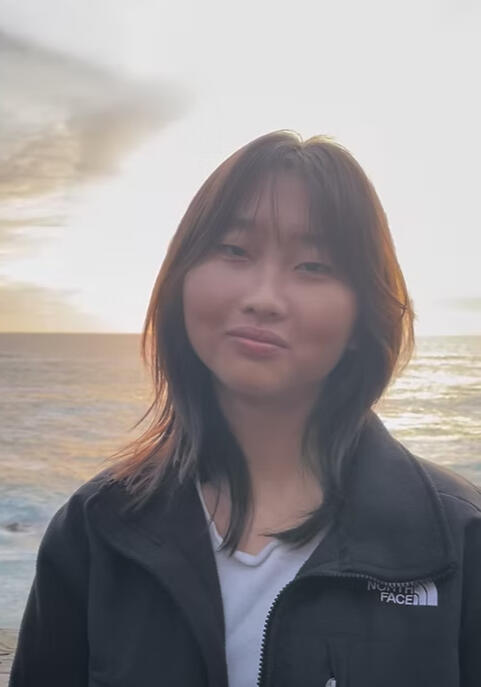
JUA KIM
Competitions Director
Jua Kim is a writer from Southern California. An alumna of the Iowa Young Writers' Studio and the Sewanee Young Writers' Conference, she has been recognized by the Alliance for Young Artists and Writers and the Leyla Beban Young Authors Foundation. She also edits for Polyphony Lit and her school's literary magazine. When she's not writing prose, she's trying to finish her graphic novel.
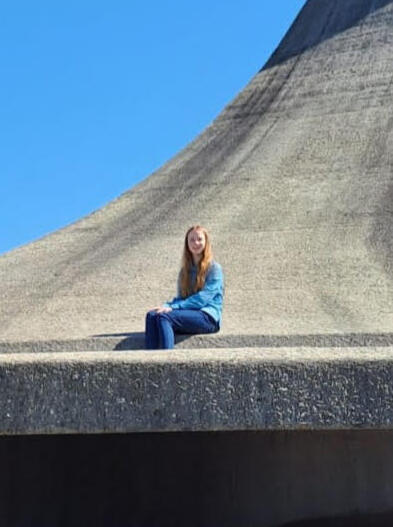
ABIGAIL KOEN
Publishing Director
Abigail is a passionate teen writer from Cape Town, South Africa, and the founder of StoryBridge, a creative platform that connects young writers and readers through storytelling, interviews, and writing advice. Her work has appeared in Dis Lit Youth Magazine and Brooke Edge Academy, and she shares her literary journey on her blog, storybridgeteens.blogspot.com.
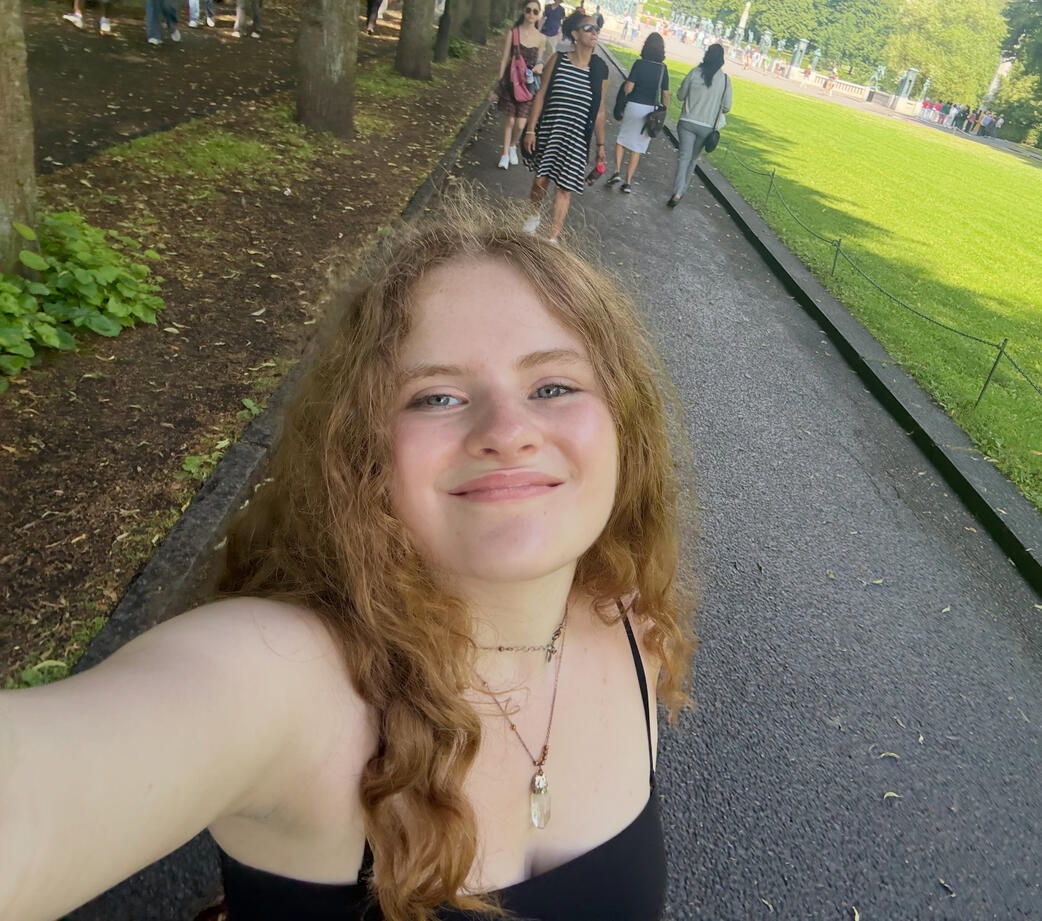
PAIGE PORCIELLO
Outreach & Partnerships Director
Paige is an ambitious student based in New Jersey who is excited to work with the WordUP leadership team! Her favorite subjects are math, science, and art. In her free time, she practices color guard, draws, and listens to Hozier. In the future, she hopes to pursue a career in astrophysics.
State Program Directors

ANANYA KHARAT
Illinois Program Director
Ananya Kharat is a writer based in the Chicagoland area, where she spends her days on LetterBoxd and making chais. Alongside being recognized nationally by the Scholastic Art and Writing awards, she is either published or forthcoming in The Stirling Review, Pen & Quill, Frighten the Horses, and others. Her Instagram handle is @ananyakharatt. One day, she'll backpack across Europe.
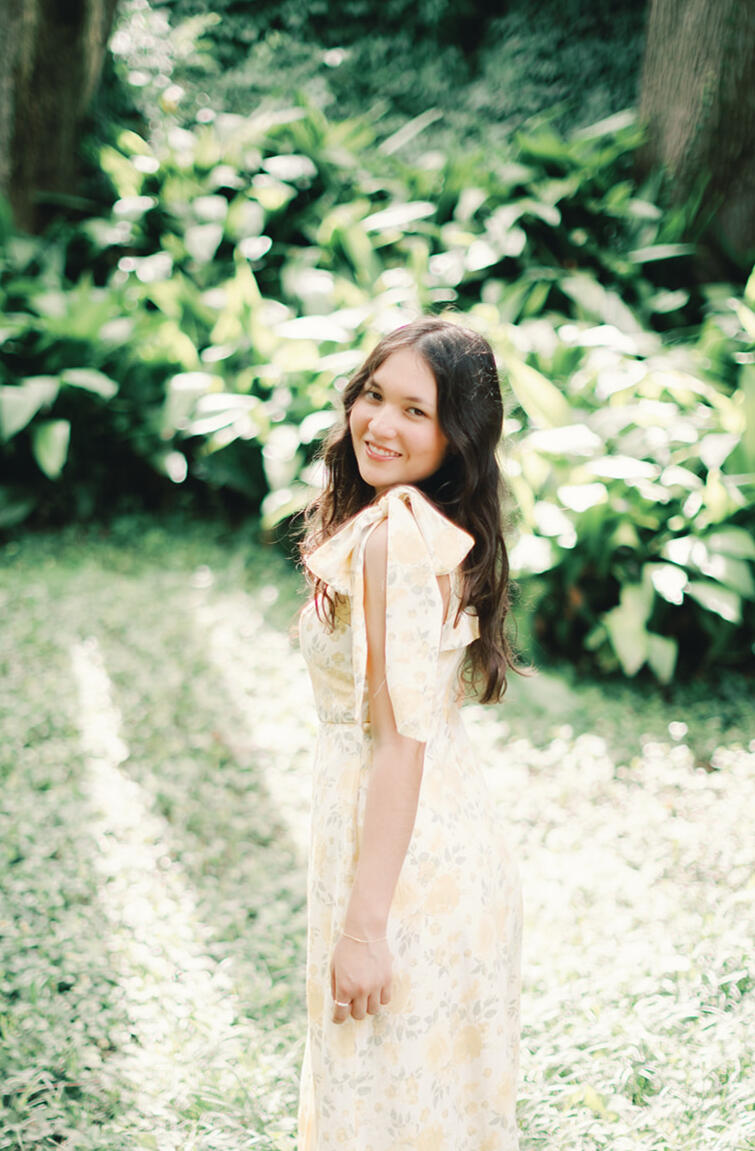
SIENNA MORRIS
Texas Program Director
Sienna Morris is a young writer hailing from Texas. She lives amongst dreams and the unbearable southern heat, and loves to collect memories to doodle during the day. Her work has appeared in or been recognized by Scholastic Art & Writing Awards, Tadpole Press, and Polyphony Lit, among others.
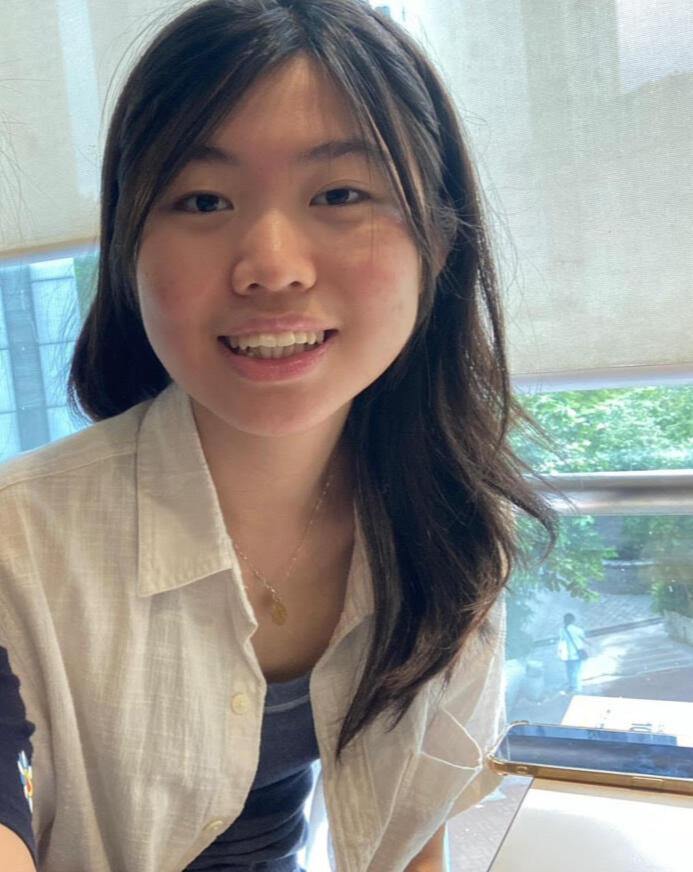
ANGIE YEUNG
Hong Kong Program Director
Angie Yeung is a summer child who loves the smell of candy stores. Her works have been published in the Eunoia Review, Ink & Marrow, Fleeting Daze among many others. A keyboardist and rock music enthusiast, she obsesses over Syd Barrett and other rockers on her Instagram art account (@delucienal_). She hopes you have a great day even if it’s raining.
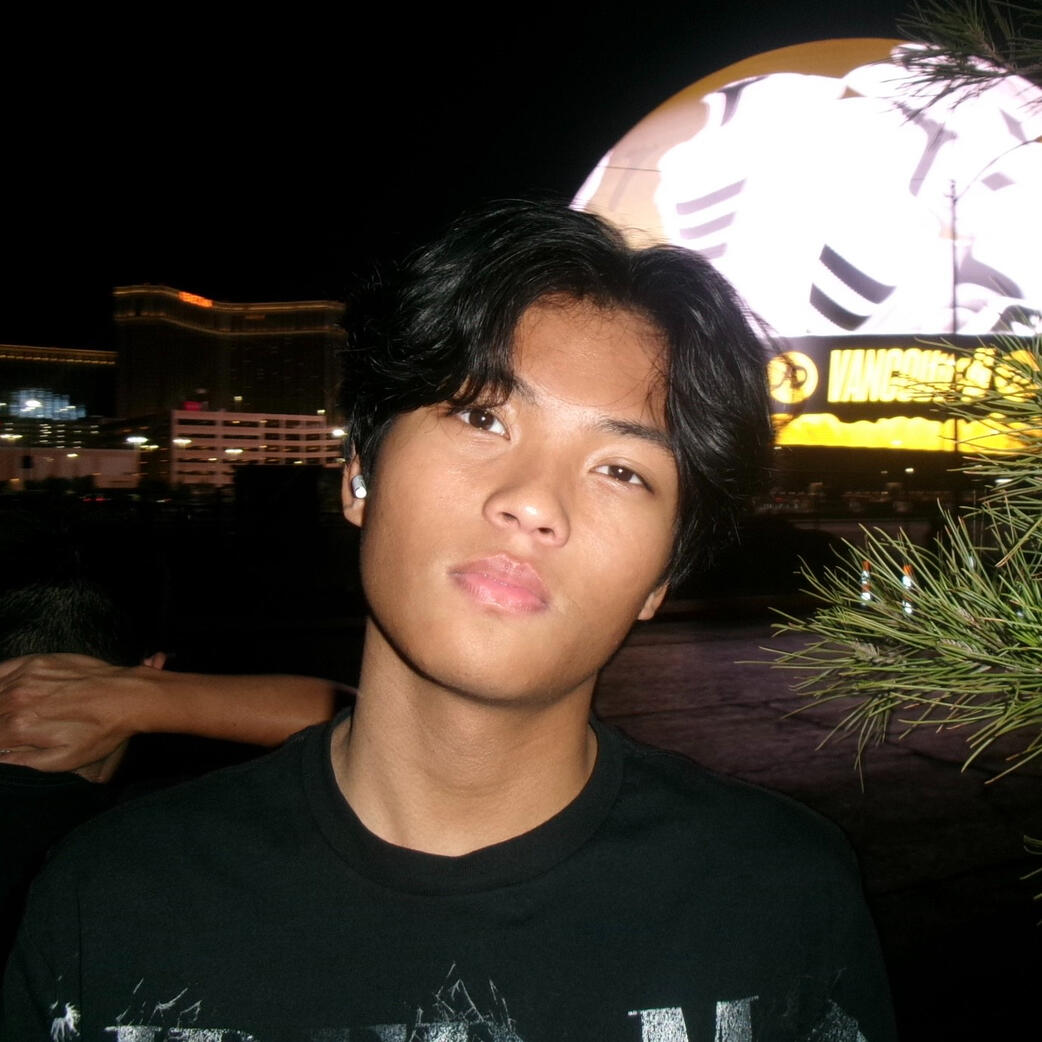
JAIDEN GEOLINGO
Georgia Program Director
Jaiden Geolingo is a Pinoy writer based in Georgia, United States, and the author of How to Migrate Ghosts (kith books, 2025). His work has been recognized by the National YoungArts Foundation, the Georgia Council for the Arts, Bennington College, and the Alliance for Young Writers & Artists, among others. A finalist for the Georgia Poet Laureate’s Prize and a 2025 National YoungArts Winner, his writing appears or is forthcoming in diode poetry journal, The Poetry Society, Atlanta Magazine, The Shore, and elsewhere. He is the editor-in-chief of Hominum Journal. Someday, he will be good at math.
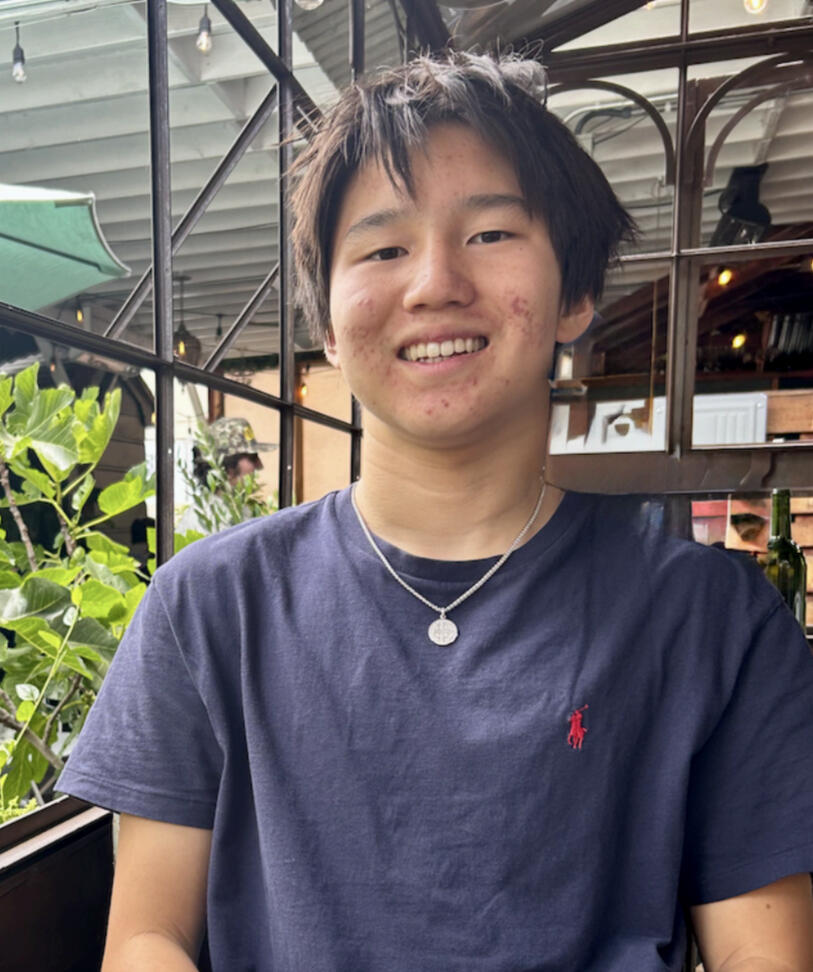
COLLIN KIM
California Program Director
Collin Kim is a junior at Harvard-Westlake School in Los Angeles, California. When not immersed in his highly caffeinated school life, he is an avid surfer and violist, enjoys reading and editing submissions to the multiple literary magazines he is involved in, and of course, writing. He has been nationally recognized by American High School Poets, Scholastic Arts & Writing Awards, Pulitzer Center, Poetry Society of Virginia, and more.
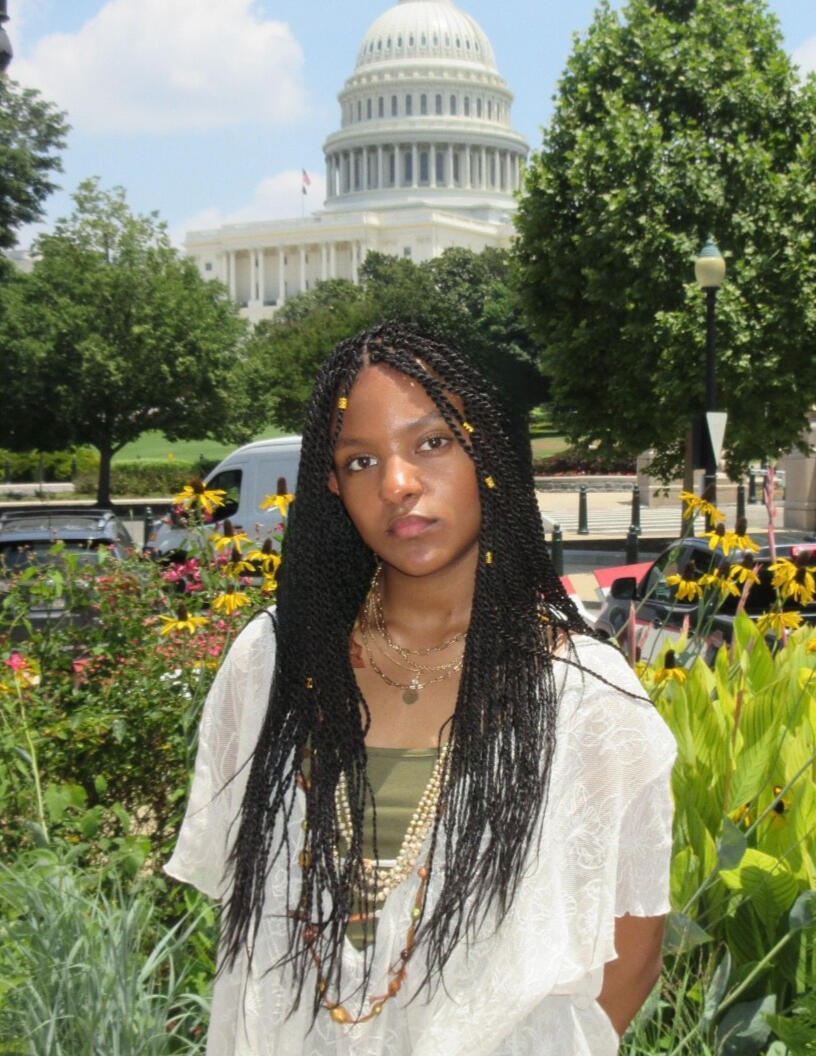
SOSENA AUDAIN
Maryland Program Director
Sosena Audain is a writer from Washington, D.C. She has a novella titled The GIVID that was published in 2021. She is currently an Executive Editor and Teaching Assistant with Polyphony Lit. Sosena has won a few national and international awards, including the National Silver Medal through Scholastic Art and Writing Awards and an award from the National Council of Teachers of English. When she’s not thinking about the next word to scribble down, she likes to listen to everything, so please give her song recs.

WordUP! Writers

Creative Writing Opportunities
Literary Magazines
Polyphony Lit is by far the most recommended literary magazine to submit to due to the extensive feedback they provide on each submission (regardless of acceptance status, you will receive two Junior Editors’ feedback and one Senior Editor’s feedback). However, turnaround and feedback can be notoriously slow. ~5% acceptance
Crashtest is a “biannual online magazine founded and run by the creative writing students at the Fine Arts Center, a public arts high school in Greenville, South Carolina, so that students in high schools all over the country will have a place to publish work that tests limits, asks questions, rejects the easy answers, risks obliteration, believes in failure, is suspicious of scripted success.” ~28.57% acceptance
Eunoia Review is a “Singapore-based online literary journal committed to sharing the fruits of ‘beautiful thinking’. Each day, [they] publish four new pieces of writing for your reading pleasure.” Eunoia Review generally responds within 24 hours and is run by Ian Chung. ~28.93% acceptance
Aster Lit is an international youth literary community founded by young writers. ~4% acceptance
The Dawn Review - however, this is a magazine open to all authors of varying ages, so it can be more competitive. ~3% acceptance
Chinchilla Lit is “an online literary magazine for young writers. Here at CHINCHILLA LIT, we care about honesty, courage, and personality. We seek work that we can relate to and cherish because it is so sheerly you. The literary world out there can be daunting, but we’re here to show you otherwise.” ~25% acceptanceIt is super important to read widely and broadly, and these literary magazines can provide lots of inspiration. You can submit to these as well, but keep in mind they are highly competitive markets:
https://sundoglit.com/
https://okaydonkeymag.com/
https://theoffingmag.com/
https://www.smokelong.com/
https://www.gasherpress.com/
http://www.theadroitjournal.org/
https://www.upthestaircase.org/
https://www.poetlore.com/
https://www.theshorepoetry.org/
http://www.birdfeastmagazine.com/
http://www.softblow.org/
http://thediagram.com/
http://pankmagazine.com/
http://www.freezeraypoetry.com/
http://bodyliterature.com/
https://rustandmoth.com/
http://www.rattle.com/
http://strangehorizons.com/
http://diodepoetry.com/
http://www.muzzlemagazine.com/
http://www.thrushpoetryjournal.com/
http://waxwingmag.org/
Programs
The following is a list of competitive but reputable summer programs for writers, listed from highest competitiveness to slightly less so. All will give you a great experience.
Iowa Young Writers’ Studio. Their 2-week residential summer program is HIGHLY selective with about a ~7% acceptance rate. From their website: “Admissions decisions are based almost entirely on the writing sample.” https://iyws.clas.uiowa.edu/how-to-apply/summer-residential-program
Kenyon Young Writers’ Workshop https://kenyonreview.org/event/young-writers-summer-residential-workshops/; also highly competitive. ~8% acceptance rate.
Adroit Journal Summer Mentorship https://theadroitjournal.org/about/mentorship/
SUNHOUSE Summer Writing Mentorship https://sunhousementorship.com/
Sewanee Young Writers’ Conference https://new.sewanee.edu/sywc/
Juniper Summer Writing Institute https://juniperinstitute.umasscreate.net/
Incandescent Summer Studio https://www.theincandescentstudio.org/If you are interested in a specific college/campus/location, you can look into their websites, as lots of colleges/universities run their own pre-college summer writing programs (Columbia, Brown, etc.), which are probably excellent, albeit less well-known.If you would like to try your hand at writing a novel, in November, a free worldwide program called National Novel Writing Month http://nanowrimo.org/ takes place, where participants write a novel in a month. WordUP! will partner with the Westfield Memorial Library in NJ to provide incentives and gifts for writers with the highest word count during the month of November (coming soon!).
Competitions
Scholastic Arts and Writing Awards http://www.artandwriting.org/ is by far the biggest writing and arts competition for middle through high schoolers. WordUP! will offer a free writing workshop specifically tailored to Scholastic submissions (coming soon!).
YoungArts https://www.youngarts.org/ is quite competitive as well.
Foyle Young Poets http://poetrysociety.org.uk/competitions/foyle-young-poets-of-the-year-award/ is an awesome one.These ones are the most significant because they offer travel opportunities and cash prizes. There’s some smaller contests too that are very good, and may also offer some cash prizes and publication opportunities:
Leonard L. Milberg High School Poetry Prize https://arts.princeton.edu/about/opportunities/high-school-contests/poetry-contest/
Patricia Grodd Poetry Prize http://www.kenyonreview.org/contests/patricia-grodd/
The Adroit Prizes http://www.theadroitjournal.org/adroit-prizes/
Claudia Ann Seaman https://www.polyphonylit.org/claudia-ann-seaman-awards
The Claremont Review Contest http://www.theclaremontreview.ca/#!contest/c1yh2
Gigantic Sequins http://www.giganticsequins.com/teens.html
JUST POETRY!!! http://www.justpoetry.org/
Nancy Thorp Poetry Contest https://www.hollins.edu/academics/majors-minors/english-creative-writing-major/nancy-thorp-poetry-contest/
River of Words http://www.stmarys-ca.edu/center-for-environmental-literacy/river-of-wordsWhen submitting to contests and competitions, remember that writing is truly such a subjective and personal venture, and sometimes, competitions can be toxic.
Glossary of Writing Terms
Author Bio – A brief paragraph describing the author. It can include your school, previous publications, and interesting hobbies.First Publication Rights – This basically gives the journal the exclusive right to publish your piece first. Generally, literary magazines want to be the first to publish work, which means they do take reprints. If a piece is published in an anthology or collection after a journal required first publication rights, that means the first journal must be acknowledged as the place where the work first appeared.Genre – Category of literature. The most common types in literary magazines are: fiction, poetry, and creative nonfiction (CNF).Masthead – The staff of a journal. Whenever you are sending a submission/email to a journal, it is helpful to address it to the genre editor to which you are submitting rather than the generic name of the journal. If you cannot find the genre editor, you can address it to the Editor-in-Chief.Simultaneous Submission – This is a submission sent to many literary journals simultaneously. Some journals will not accept simultaneous submissions and will mention it in their submission requirements, so keep an eye out. If you are submitting simultaneously, make sure to mention that this piece is a simultaneous submission in your email. In the event one journal accepts your piece, you should accept it immediately and withdraw all other simultaneous submissions as soon as possible.



